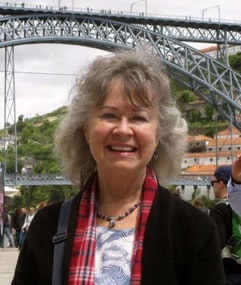Patricia Carrelli: How I Became an Oxfordian
The first time I saw a full-length Shakespearean production was at my Junior High School almost sixty years ago. The director was Mr. C, a fairly well-known drama teacher in Southern California at the time, and he chose Taming of the Shrew to direct as his first Shakespearean production. Katherine and Petruchio were both thirteen. Could that really work? Well, I am here to tell you that not only did it captivate the audience but Mr. C’s teenage performers went on to win multiple awards for performing Shakespeare scenes as well as full-length productions. That exposure to an adolescently performed Shakespearean play started my interest in wondering who was this guy who wrote such cool stories for kids? How did he understand teenagers 400 years ago to be able to write for them so clearly and appropriately?

Full disclosure: many years later, I married “Mr. C” – the Carrelli after Patricia – and we have subsequently directed, produced, or attended more than a hundred Shakespearean productions together: Merry Wives of Windsor done in the 1950’s style complete with poodle skirts; Twelfth Night reworked to take place in the Wild West of the 1850’s; and the spectacular Midsummer Night’s Dream in Prague Castle with Puck played by an eighty-year-old Czech actor. But still those early questions lingered. After visiting Stratford-on-Avon, there were even more curiosities to wonder about – how did a small-town man know so much about the law, music, Italy, medicine, herbs, and history, not to mention the court life of the English kings and queens?
Fast forward to 2012: my husband and I were living in Kuala Lumpur, Malaysia where I was teaching at an international school. One of the films we saw there was Anonymous by Roland Emmerich. Ah ha! Maybe it wasn’t the Stratford man after all! That piqued my interest in De Vere, but our school library had no mention of him. I immediately ordered any book title that came up about De Vere and that Amazon would deliver. Fortunately, although our Internet capabilities were sometimes limited, I came across Hank Whittemore’s fascinating blog, Prof. Roger Stritmatter’s amazing work on De Vere’s Geneva Bible, and several other interesting sites and articles from Australia and Great Britain. It was comforting to eventually find the welcoming SOF, plus Alex McNeil and Tom Regnier’s encouraging correspondences. Returning to my early junior high questions, I had the opportunity while living overseas to talk to hundreds of international teenagers who often had the same questions I had. A day after one of my presentations, a group of excited young people stopped me in the halls and proceeded to proclaim, “You know that guy, Edward De Vere? A bunch of us looked him up last night and Mrs. Carrelli, we think you’re on to something!”
Since returning stateside a few years ago, my Oxfordian library has increased to two full shelves, and I am getting ready to attend my fourth SOF Conference. Finding answers to all those early questions about authorship and learning more about De Vere’s life and academic experiences have subsequently enriched every Shakespearean play I have seen or read: his humanity, wisdom, sensitivity, and life experiences help explain why the most brilliant people I have ever known all want the same thing…to give full credit to the true genius who was the real Shakespeare – Edward De Vere.
— Patricia Carrelli
“How I Became an Oxfordian” is edited by Bob Meyers. You may submit your essay on this topic (500 words or less in an editable format such as MS Word), along with a digital photo of yourself, to: communications@shakespeareoxfordfellowship.org. Also include a sentence about yourself (e.g., “John J. Smith is a businessman in San Francisco.”)
SOF memberships are now available on our membership page.
Membership dues cover only a fraction of our budget, including all our research, preservation and programming. Please support the SOF by making a gift today!
Blue Boar Tavern: Wassail Q&A
Tuesday Dec. 17, 8pm E / 5pm P
Sign up below for event invites!
